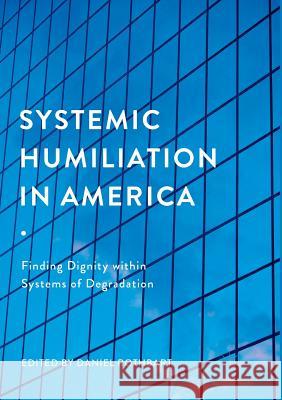Systemic Humiliation in America: Finding Dignity Within Systems of Degradation » książka
topmenu
Systemic Humiliation in America: Finding Dignity Within Systems of Degradation
ISBN-13: 9783030099817 / Angielski / Miękka / 2019 / 246 str.
Kategorie:
Kategorie BISAC:
Wydawca:
Palgrave MacMillan
Język:
Angielski
ISBN-13:
9783030099817
Rok wydania:
2019
Wydanie:
Softcover Repri
Ilość stron:
246
Waga:
0.31 kg
Wymiary:
21.01 x 14.81 x 1.37
Oprawa:
Miękka
Wolumenów:
01
Dodatkowe informacje:
Wydanie ilustrowane











